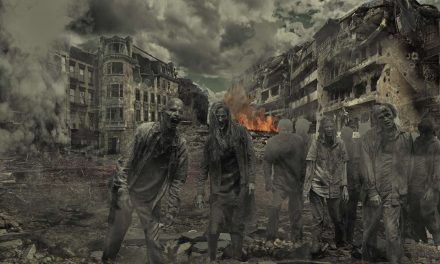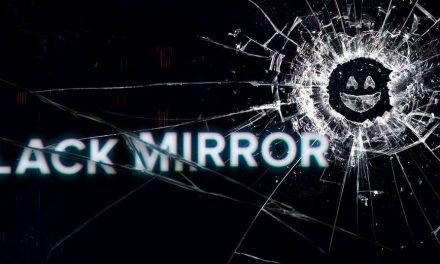This edited volume on Sylvester Stallone will be a contribution to a new series of ‘Screen Storytelling’ texts published by Bloomsbury Academic.
The SCREEN STORYTELLING series is designed for students, professors, and enthusiastic consumers of film, television and new media who seek information about contemporary and historically significant screenwriters that is both accessible and critically rigorous. The intention with this new series is to bring much-deserved attention to screen and television writers who have developed noteworthy film and television series of significant aesthetic or cultural achievement, critical acclaim, or commercial success, and to offer close readings of the films and series from the perspective of story, screenwriting craft, audience reception, and cultural impact. Each volume will explore the works of a single screen storyteller. The series will place a strong focus on examining works by screenwriters often left out of classroom syllabi, including women, writers of colour, LGBTQ writers, international writers, as well as male screenwriters whose work is rarely examined in screenwriting classrooms.
The Works of Sylvester Stallone
Sylvester Stallone – screenwriter, actor, director, producer; novelist; fitness guru; painter; documentarian; entrepreneur; reality TV and video game star; global icon – has occupied a place in Hollywood and cultural history for six decades and counting. A prolific screenwriter, he has amassed forty-four writing credits (twenty-four of them for feature films), and over a hundred for acting. Since 1977 he has remained only the third man in film history to receive Oscar nominations for both Best Actor and Best Screenplay, an achievement he shares with Charlie Chaplin and Orson Welles.
As Stallone’s definitive work, Rocky (1976), nears its half-century the fabled screenplay endures as a paean to overcoming the hard knocks of working-class life; embedding Capra-esque themes of ‘love of people’, family bonds, wholesomeness, perseverance, and residing myth. The character of ‘Rocky Balboa’ famously draws from Stallone’s life story as vulnerable protagonist: an Italian American born into poverty Stallone overcame facial and speech disabilities, dyslexia, expulsion from fourteen schools, and nights sleeping rough in a New York bus terminal, to take a chance on his Hollywood dream. Rocky gained ten Oscar nominations and three wins. The franchise has since yielded five more films and, forty years on, Stallone reprised Rocky Balboa for Creed (2016) winning a Golden Globe for Best Supporting Actor to the obvious delight of his peers.
In tandem, Stallone created the Rambo franchise, entering this age 36 and exiting aged 73, while the Noughties culminated in the first of The Expendables’ quartet. Amid franchises and sequels, an incredible variety of screenplays and performances – The Lords of Flatbush (1974), Victory (1981), Rhinestone (1984), Cobra (1986), Copland (1997), Cliffhanger (1993), Demolition Man (1993), Antz (1998), Grudge Match (2013), Samaritan (2022), Guardians of the Galaxy II and III (2017; 2023)– feature in the era of Stallone. This year, Thom Zimny’s documentary Sly has premiered on Netflix with contributions from Talia Shire, Arnold Schwarzenegger, and Quentin Tarantino.
Despite decades of career resilience – deflecting criticism, rejection, and failure – Stallone is an overlooked subject for critical academic study, attracting only a small catalogue of essays and a single book to date.*
With this volume, I hope to offer critical celebration of Stallone’s work and contributions to the film industry and field of screenwriting.
Essays for this forthcoming Stallone collection may explore single works, franchises, and themes.
Possible essay topics might include but are not limited to:
- Influences and inspiration
- Eras of work: 1970s-2020s
- 1970s ‘Pre-Rocky’: The Lords of Flatbush (1975)
- 1970s ‘Post-Rocky’: Paradise Alley (1978); F.I.S.T. (1978)
- 1970s context: Film of the 1970s: the ‘silver age’; screenwriting in the era; contextual works; politics; depictions of working class America
- Lead and supporting characters
- Masculinity
- The individual, the family, women, children, animals
- Body image, disability
- Catholicism
- Service veteran narratives; boxing, Sport, narratives; action cinema
- Race
- Typecasting, career anomalies
- Stallone and the ‘Star’ system
- Criticism and career rejection : accusations of ‘Capra corn’; Pauline Kael, David Thomson, Peter Biskind; The Razzies; negative reviews; discrimination, professional rivalries; dropped by CAA; box office failures and recovery
- Artistic diversity: Stallone painting retrospectives (e.g., Osthaus Museum Hagen; Musée d’Art Moderne et d’ Art Cotemporain, France; Toronto Film Festival (TIFF)(2023)
- Screenwriting style/development/trajectory
- Settings, aesthetics
- Co-writing
- Adaptation
- Themes and motifs
- Gaming: appearance as John Rambo in Mortal Kombat 11 (2019)
- Reality TV: The Family Stallone (2023) for Paramount +
- Cultural impact: the ‘Rocky steps’ and the Rocky Statue, Philadelphia Museum of Art; the Boxing Hall of Fame; memorabilia held by the Smithsonian Museum/National Museum of American History
- Hollywood Legacy and global perspectives
- The Rocky franchise 1976-
- The Creed franchise 2016-
- The Rambo franchise 1982-2019
- The Expendables franchise 2010-2023
Please submit a 250-word abstract along with a 150-word biographical statement to lee.goodare@newcastle.ac.uk by January 12th, 2024.
Please title the subject line of your email: Abstract – The Works of Sylvester Stallone.
Questions should be directed to the above email address – and please feel free to disseminate this call for proposals to interested colleagues. Contributors are welcome from all professional fields (including, for example, film, screenwriting, and cultural scholars; aspiring and professional writers; filmmakers and podcasters) and at all career stages.
Finished essays will be around 3000-3500 words and written for an audience of student readers and film and television enthusiasts.
Abstracts due by January 12th, 2024
________________________________________________________________________________
*Series Editor: Anna Weinstein.
[Coming soon in the Screen Storytellers series: Weinstein, A. (2024) The Works of Shonda Rhimes, Bloomsbury Academic].
**Ahead of proposals for this volume you may prefer to consult Professor Chris Holmlund’s The Ultimate Stallone Reader: Sylvester Stallone as Star, Icon, Auteur (2014) to avoid content duplication. The ten essays in the volume are listed here: https://jstor.org/stable/10.7312/holm16980.2
_________________________________________________________________________________





